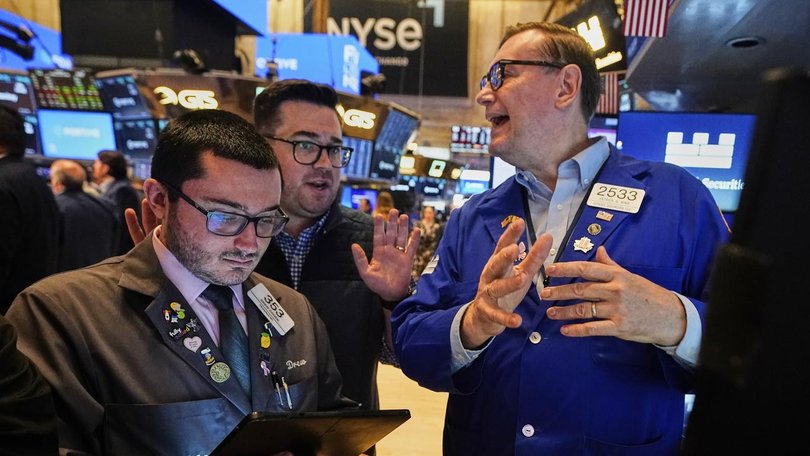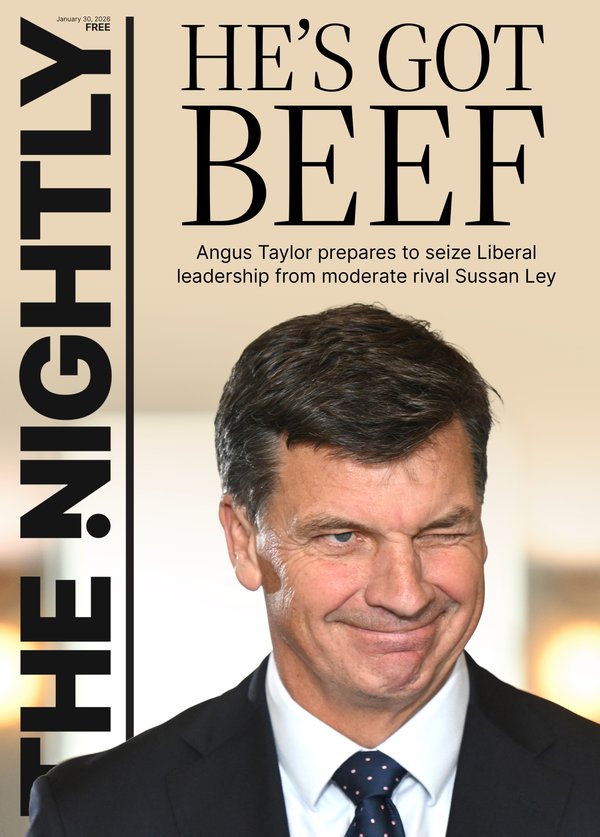Wall Street reaction to Middle East conflict and ceasefire: Why most markets were unfazed
Iran attacked a US air base in Qatar, US President Donald Trump announced a ceasefire and Israel and Iran accused each other of breaking that truce. Here is why the markets reacted the way they did.

Global equities posted muted gains Tuesday, as investors digested US President Donald Trump’s announcement of a ceasefire timeline between Iran and Israel, as well as growing signs of fatigue toward Mr Trump’s policy making.
The MSCI World index, which tracks over a thousand large and mid-cap companies from 23 developed markets, was just 0.24 per cent higher as of 1pm Singapore time.
US futures were also up marginally. Futures tied to the Dow Jones Industrial Average inched higher by 0.71 per cent. S&P 500 futures gained 0.74 per cent, while the Nasdaq 100 futures rose 0.98 per cent.
Sign up to The Nightly's newsletters.
Get the first look at the digital newspaper, curated daily stories and breaking headlines delivered to your inbox.
By continuing you agree to our Terms and Privacy Policy.While Asian equities edged higher, broader gauges of investor sentiment remained relatively subdued, reflecting a market that is potentially getting desensitised by America’s policy making.
“The markets are muted again for two reasons. Number one is there are elements of the market getting jaded at Trump policy changes, though this has been going on for a while,” said Hugh Dive, chief investment officer at Atlas Funds Management.
Dive added that the second reason would be how the Iranian response to US strikes on its nuclear facilities was largely subdued. On Monday, a missile strike by Iran on a US airbase in Qatar left no reported casualties.
After the wild swings from changes to tariff policy in April, each successive change has seen less of a move, Dive pointed out.
“Winding back the alarming headline moves in tariffs has seen subsequent shocks less,” he told CNBC.
Since the start of the year, Mr Trump’s pattern of threatening steep tariffs and policies that rattle markets, only to ease or postpone them after a sharp market sell-off, prompted a phrase that has ruffled the president’s feathers — “Trump Always Chickens Out.”
Some also saw Middle East de-escalation on the cards.
While Iran’s Foreign Minister Seyed Abbas Araghchi refuted claims that Tehran had agreed to a US-brokered ceasefire deal with Israel, he signalled that his country was ready to stop hostilities.
“In reality, I think markets focus very quickly on the likelihood that the geopolitics allowed Iran to think about what their response would be. And I think that de-escalation seemed a likely event,” said Vis Nayar, chief investment officer at Eastspring Investments.
The reported ceasefire is “the most bullish outcome” Wall Street could hope for, said Dan Ives, managing director at Wedbush Securities, who believes that US markets should rally once they start trading on Tuesday.
“Some will say the ceasefire will not last but the reality is Iran has limited options and negotiations will now take over which is a positive for stocks,” Mr Ives added.
Safe haven assets, which typically see more selloff in perceived times of peace, saw a marginal selling down.
Spot gold prices inched lower by 1.05 per cent to trade at $US3,333 ($5129) per ounce, remaining at record highs.
Yields on the US 10 year Treasury rose around 2 basis points to 4.344 per cent. Yields and prices move inversely in the bond market, meaning higher yields equal lower prices and potentially a decline in demand.
Yields on the 10-year Japanese government bond, another typical safe haven, was up only a little by around 1 basis point to 1.425 per cent.
The Swiss franc stayed firm at 0.8114 against the greenback. The US dollar index, which measures the greenback’s strength against a basket of currencies, slid 0.29 per cent.
